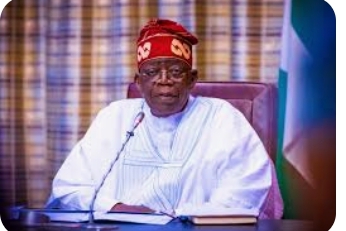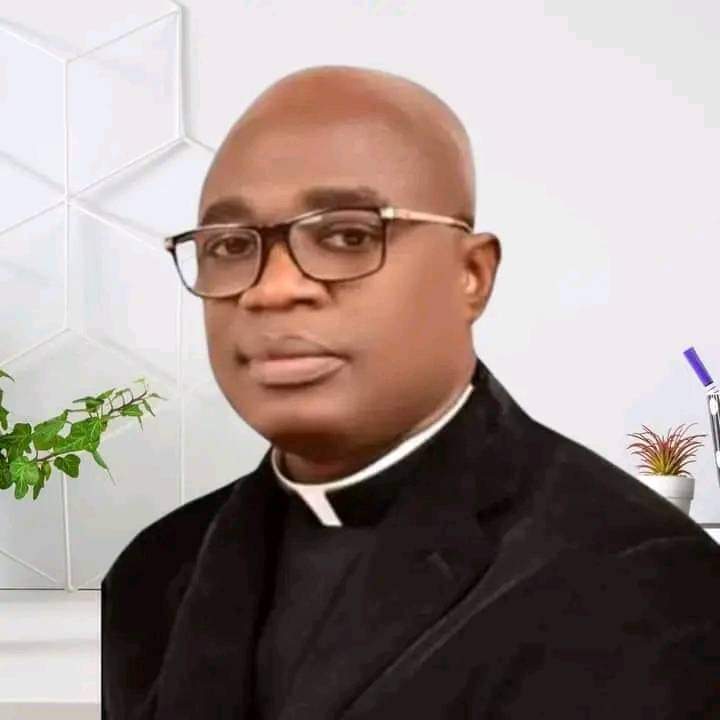By Ussiju Medaner
I am going to start today’s piece by referring to the same facts I had submitted immediately after the 2023 General elections. It is unfortunate and demeaning that political parties and aspirants who after losing at the elections would descend so low in a condescending manner to fabricate and weaponise varieties of falsehoods to maintain holds on their support bases in the name of contesting the presidential election at the tribunal. I still find it ridiculous the grounds upon which both the candidates of PDP and the Labour Party, that came 2nd and 3rd respectively at the poll, are contesting the outcome of the election.
We must know for certain that Nigeria as a country is walking on a very tightrope; so delicate that we could break at any time if we do not consciously redress our decisions to collapse the nation. It is also obvious from the actions of the two major opposition parties that they do not care if the country burns in the aftermath of their coming predictable losses at the presidential poll. The level of intimidation and blackmail against the system by the two main opposition candidates who are moneybags, arguably has never been witnessed in the history of this nation. And to what end is a reasonable question.
The ENDSARS of a few years ago easily come back to mind; and from many respected quarters, it has been suggested that the nationwide protests were orchestrated by some political elements as a prerequisite to create a self-profiting political atmosphere in the 2023 election season, without caring about what the disturbance would do to the sanctity of the soul of the country and its overall unity. While we have not yet survived the undertone of the attacks and the disturbance, we become more divided along regional lines till today and this played out effectively in the nature of campaigns and divisions that characterised the pre-election campaigns, and the post-election outbursts.
The same is about to reenact itself. The opposition has gone ahead once again to weaponise their share of the population for a possible rebellion against the system in the event they lose again at the presidential tribunal. A loss that is more than certain. In a gangster manner and gang up, we are seeing what would appear to many as a coincidence but which in reality is part of an orchestrated plan to set the streets, and the public up against the state and the entire nation, and possibly influence the judgement at PEPT. Suddenly, NLC wants a two-day warning strike colliding with the day of the tribunal judgement. As the Yoruba people would say, the witch cried yesterday, and the child died today, Who would not know it is the witch that killed the child! The opposition is getting the people ready for an uprising after the judgment.
At the same time, they are heating the system as they subtly invite the military to upset the system with a takeover. It is unfortunate that the same people, who till a few months ago were lovers of democracy, would suddenly wish the death of the same for the same country they want to rule democratically.
We had, in March 2023, arguably, the most intensive elections in the history of Nigeria; we had an election where the unbelievable happened and happened repeatedly. The ruling party lost in all its major strongholds to the opposition. APC lost the home state of the president, Lagos to the Labour Party candidate; the ruling party lost Kaduna, Kano and Katsina, the home state of the former President, Muhammadu Buhari, to the opposition. We had an election where sitting governors contested elections and lost to unknown political elements. We had an election in FCT where a four-time serial loser won against a very formidable Philip Aduda, the candidate of PDP and the then-sitting FCT Senator. We had an election where a commercial bike rider won the Kaduna South House of Representatives seat against both the veteran candidates of the PDP and APC. The upset was regular and evenly distributed across the country.
Yet, the opposition, especially the Labour Party supporters would persist in crying of rigging. I have asked myself for an umpteenth time; if APC were to rig the election, wouldn’t it be in Lagos, Kano, Kaduna and Katsina? Did the party rig to lose in Lagos and all the other mentioned states? APC went ahead to win the election despite the upset because it was able to come second in most of these states and as a result of the division that plagued the once formidable PDP that led to the fragmentation of its votes.
Immediately after the polls, the unexpected gang-up began; the family of the divided parties, once again, reunited to fight their common foe. PDP, LP, and NNPP wanted the election process halted. What are their reasons? APC rigged and manipulated the elections, yet, the Labour Party beat the ruling party in Lagos, PDP beat the ruling party in the former president’s home state of Katsina, and APC lost Kano to NNPP and lost Kaduna to PDP. According to them, APC was only leading in 12 states, PDP was leading in 12 states, and the Labour Party was also leading in 12 states, and yet only APC rigged to win the states it won but the elections were free and fair in states where the opposition won. What hypocrisy and crop of bad losers!
Interestingly, the losses became a blessing in disguise for the ruling party; APC’s loss in Lagos and all those other critical places have put to rest all the election rigging conspiracy theories against the party, especially from all the rational thinking persons and groups. Or how does a party-perfect rigging to lose its bases and strongholds?
Before the election, we have told them that elections are not done on social media. We told them the real voters would be surfacing to vote on Election Day. They could not imagine where the APC figures came from. They assume in their irrationality of self-affliction that all Nigerians are emotionally attached to their religions and ethnicities to the point of flying with the conspiracies they branded and sold out.
It was impossible for both PDP and LP to contest the facts of the election figures; by the figures, they lost and they knew all along. Yet, they would proceed to the tribunal for reasons best known to them. What are the needless bases they went to the tribunal? Perhaps, to save face.
They claimed the president did not attend and graduated from Chicago State University as claimed. Even when the university repeatedly and with evidence, declared the president was their student and the same suit had appeared in the past in favour of the president, the opposition is still infusing false hopes to their supporters to await victory on the back of this rather weak propaganda.
They also went ahead and claimed the president was convicted of a drug-related case in the US where he forfeited some sum of money they claimed was proceeds of crime. These people intentionally altered the facts of the matter to suit their preferred rhetoric. While the US document states an indictment from the accusation and allegation and not a conviction, they intentionally concluded and fed their uninformed followers with the lies they want them to run with. In the United States, when a person is indicted, it only means they will be given formal notice that they are believed to have committed a crime and therefore, an explanation will be required by way of defence. Now, even when the United States DOJ, FBI, and DEA have all cleared the president of wrongdoings and confirmed he was never charged and convicted of any criminal acts in the US, they will still not hear it but would prefer to sustain their pitiable delusions.
Peter Obi and his party won only one governorship race and lost woefully in all the states of the North West and North East would insist he is the rightful winner of the election because he won FCT and the seating president did not have 25% of the vote cast in FCT.
Long before now, in several litigations, the Supreme Court has affirmed that FCT by law is the 37th state of the Federation and that it holds no special election outcome-deciding status. Yet, they will insist FCT has more voting rights than all the other states. Peter Obi whose claim of having evidence and witnesses across the nation to testify at the tribunal could barely present eleven or so witnesses after several weeks for an election that took place in over 176,000 polling units. Isn’t it a joke carried too far?
They also insist the president should be disqualified because his running mate, the vice president, was not validly nominated. Yet, after courts of competent jurisdiction have declared that Shettima was adequately nominated, they would still not hear it.
Atiku Abubakar insisted the result must be transmitted via iRev and BVAS for it to be legally admissible, yet they all know that the Electoral Act empowers INEC to determine the mode of transmission of results as it so pleases. Already, we all know what the Supreme Court says about that in the Osun governorship election petition. So, the PDP candidate has no hope on this rather shaky ground.
These were the same reasons Atiku and Obi presented before the tribunal and have been promising their one-way supporters to expect victory at the tribunal. Well, these people know what they are doing; they are oiling and maintaining their support bases for 2027, while the Obidients and the Atiku supporters would likely get themselves killed defending the lies they were fed with.
Shouldn’t we learn from Donald Trump’s continuous fabrication of election rigging lies in the 2020 election and the current situation of things for him and all those who were helping him to propagate the lies? Many today are already convicted and in jail, several are on their way and Trump himself has over 90 indictments and very probable convictions and jail terms in months to come.
GOD BLESS THE FEDERAL REPUBLIC OF NIGERIA!











